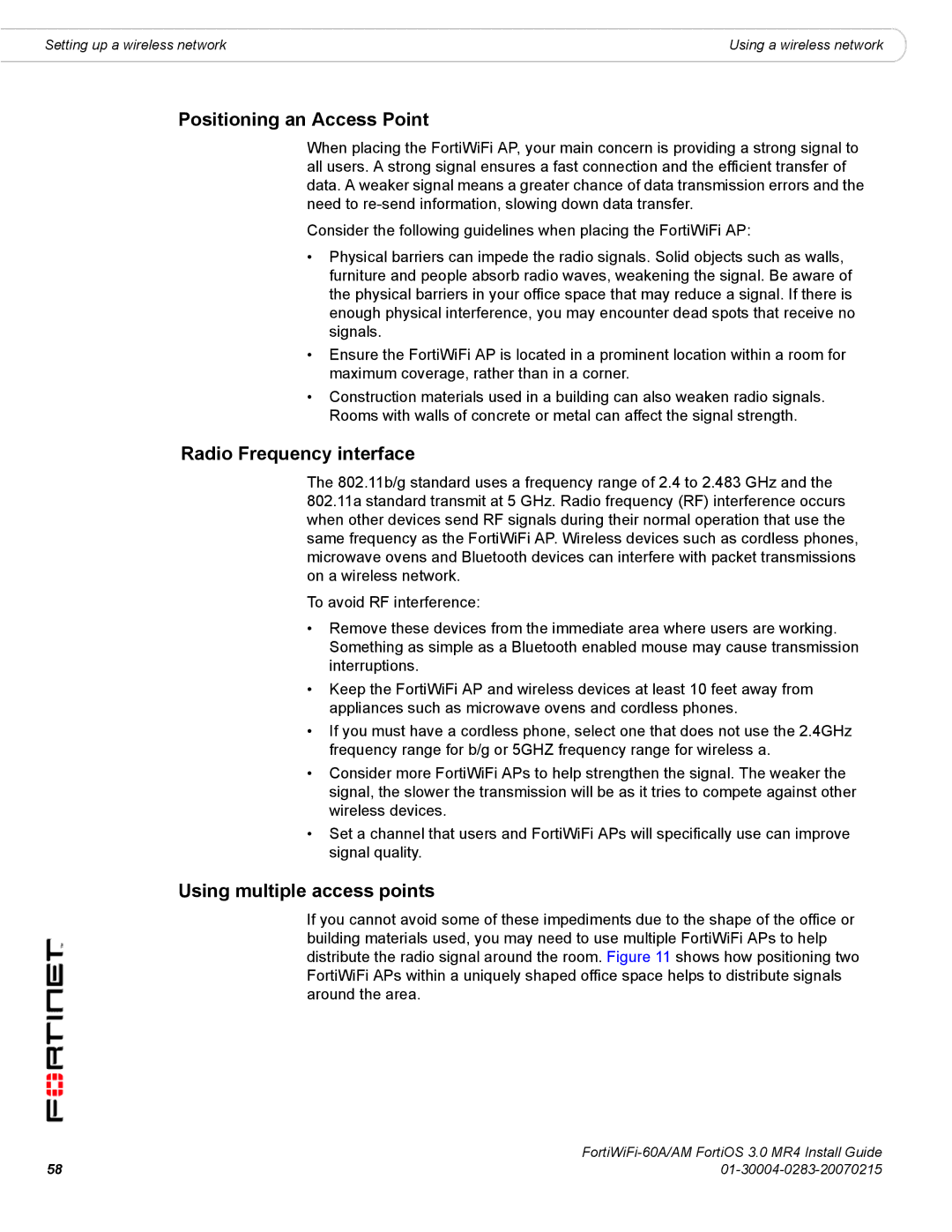
Setting up a wireless network | Using a wireless network |
Positioning an Access Point
When placing the FortiWiFi AP, your main concern is providing a strong signal to all users. A strong signal ensures a fast connection and the efficient transfer of data. A weaker signal means a greater chance of data transmission errors and the need to
Consider the following guidelines when placing the FortiWiFi AP:
•Physical barriers can impede the radio signals. Solid objects such as walls, furniture and people absorb radio waves, weakening the signal. Be aware of the physical barriers in your office space that may reduce a signal. If there is enough physical interference, you may encounter dead spots that receive no signals.
•Ensure the FortiWiFi AP is located in a prominent location within a room for maximum coverage, rather than in a corner.
•Construction materials used in a building can also weaken radio signals. Rooms with walls of concrete or metal can affect the signal strength.
Radio Frequency interface
The 802.11b/g standard uses a frequency range of 2.4 to 2.483 GHz and the 802.11a standard transmit at 5 GHz. Radio frequency (RF) interference occurs when other devices send RF signals during their normal operation that use the same frequency as the FortiWiFi AP. Wireless devices such as cordless phones, microwave ovens and Bluetooth devices can interfere with packet transmissions on a wireless network.
To avoid RF interference:
•Remove these devices from the immediate area where users are working. Something as simple as a Bluetooth enabled mouse may cause transmission interruptions.
•Keep the FortiWiFi AP and wireless devices at least 10 feet away from appliances such as microwave ovens and cordless phones.
•If you must have a cordless phone, select one that does not use the 2.4GHz frequency range for b/g or 5GHZ frequency range for wireless a.
•Consider more FortiWiFi APs to help strengthen the signal. The weaker the signal, the slower the transmission will be as it tries to compete against other wireless devices.
•Set a channel that users and FortiWiFi APs will specifically use can improve signal quality.
Using multiple access points
If you cannot avoid some of these impediments due to the shape of the office or building materials used, you may need to use multiple FortiWiFi APs to help distribute the radio signal around the room. Figure 11 shows how positioning two FortiWiFi APs within a uniquely shaped office space helps to distribute signals around the area.
58 | |
